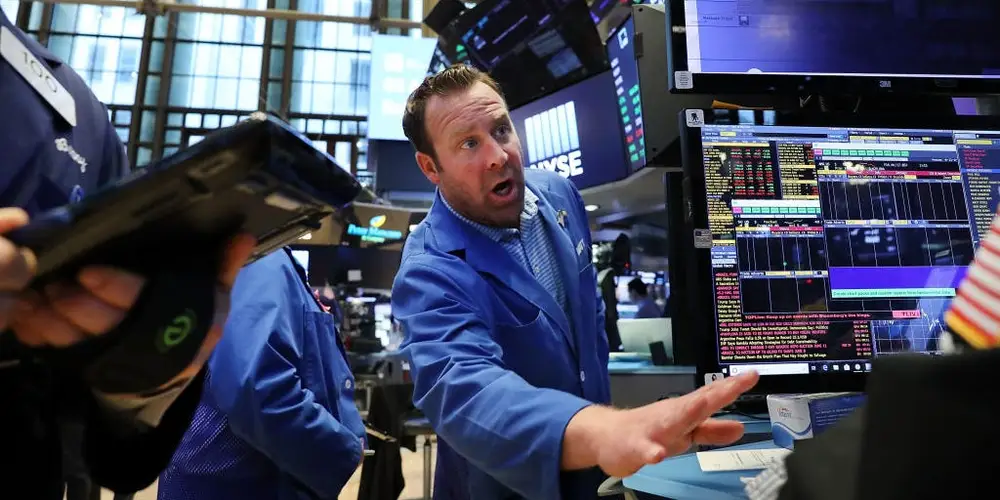Stock market valuations don’t ‘reflect the damage ahead,’ BlackRock warns

Signs of stress are building in the US housing market. (Photo by SAUL LOEB/AFP via Getty Images)
More pain for investors lurks in 2023, warns the strategy team at BlackRock.
In a new report, BlackRock contends that stock valuations don't yet "reflect the damage ahead." The money manager says it will "turn positive on equities" when it believes valuations fully reflect the "damage" on the horizon.
One of the lead authors of the report, strategist Wei Li, told Yahoo Finance Live investors need to be on high alert for several factors that could bring the S&P 500 back toward the October lows of about 3,600.
"We do not see rate cut cycles starting next year," Li said about one factor that could unsettle stocks in 2023. "In fact, we see them starting in 2024, but even then, it's more muted than what markets are pricing in."
Li also noted that earnings estimates for companies remain too high given BlackRock's view of a modest recession next year.
"We see the U.S. equity market in terms of EPS growth for next year at -6%, and that stands in contrast to the current consensus and market pricing, which is why we would lean against the equity rebound that we saw at various moments even just this month," Li added.
To be sure, the market is likely to enter 2023 on weak footing.
Stocks were crushed again on Thursday after chip giant Micron's soft quarter and outlook triggered more economic concerns.
In December alone, the S&P 500, Dow Jones Industrial Average, and Nasdaq Composite are down more than 5%, 3%, and 7%, respectively.
The selling pressure in markets has returned after the Fed delivered a 50-basis-point interest rate hike in its final policy meeting earlier this month, bringing the benchmark rate to the highest level since 2007. The central bank also surprised market watchers in two more ways.
First, the Fed's updated economic forecasts showed that officials see rates peaking at 5.1% in 2023. That's an extra 50 basis points higher than they predicted back in September.
Second, Fed Chair Jerome Powell sounded more hawkish on the central bank's policy path than some expected.
Soft readings this month on retail sales and consumer confidence hasn't helped market sentiment, either.



